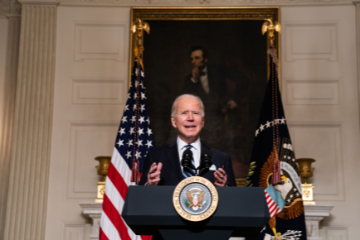
After the successful parliamentary elections in May that revived a spirit of democracy in Europe, Brussels seems to be back to its old ways. All top jobs including the president of the European Commission are still vacant. Whoever would like to “call Europe” these days, will have to consider a number in Berlin or Paris or both. While neither the newly elected parliament nor the national governments managed to find common ground, it remains with the European council (EC) to decide about the most influential positions.
While neither the newly elected parliament nor the national governments managed to find common ground, it remains with the European council (EC) to decide about the most influential positions.
For this purpose, six prime ministers headed by President of the EC, Donald Tusk, met in the first week of June for a dinner. Their task was to sound out who could succeed Jean-Claude Juncker as head of the EC as well as other important jobs such as the president of the European Central Bank (ECB), the president of the European Parliament (EP) and the High Representative for Foreign Affairs (currently hold by Mario Draghi, Antonio Tajani and Federica Mogherini respectively).
Among the dinner guests were neither German Chancellor Angela Merkel nor French President Emmanuel Macron, the most powerful players in this game; which shows that negotiations will probably become very difficult. The advance party consisted of two representatives of the largest groups in the EP namely the Liberals (represented by Mark Rutte of the Netherlands and the Belgian Charles Michel), the Conservatives (Kirsjanis Karins of Latvia and Andrej Plenkovic of Croatia) and the Socialists (Antonio Costa of Portugal and the Spaniard Pedro Sanchez).
The sherpa-group stressed in a statement that the unique meeting was “an informal process” that does not replace “formal discussions in the European Council and the European Parliament” but it smacks of the usual back-door-meetings that many citizens of the European Union are tired of. Especially since parties that gained significantly in the elections, mainly the Greens and the Far-right were not invited to that high table. There is probably no better way to create resentment or EU-fatigue than simply ignoring the verdict of the voter.
The outcome of this in-transparent process is hard to predict. EU-Insiders agree that Manfred Weber, the lead candidate (or Spitzenkandidat as it is called in German) of the conservative group EEP has been significantly weakened since his party, the German Christian Democrats (CDU) lost more than 6% in the elections and his boss, Angela Merkel was always a somewhat lukewarm supporter. At the same time, French President Emmanuel Macron claims the most important position in the EU for his group, the Alliance of Liberals and Democrats for Europe (ALDE) - one of the winners of the elections, although his own party lost in France to right-wing populist Marine Le Pen.
Macron’s position was weakened last week when his candidate for the Commission president, Nathalie Loiseau compared Weber in a newspaper column to an “ectoplasm”. For non-microbiologists, this is the outer layer of an amoeboid cell. The expression was also used in the movie “Ghostbuster” for a slimy paranormal phenomenon. Probably, not the best way to recommend oneself for a job that requires a high level of diplomatic skills. Loiseau had to step back.
Remains Margrethe Vestager, the feisty Danish Commissioner for Competition and also a liberal, who already announced her interest in the top job. The ALDE group did not nominate a Spitzenkandidat because it considers the fact that the lead candidates cannot be voted for on a pan-European list but only in their national constituencies as undemocratic. This point-of-view has been supported by France and some smaller countries. However, large parts of the Parliament still favour the lead candidate system because it gives the EP more leverage over the process that has been traditionally in the hands of the European Council. Still in the race is therefore Frans Timmermans, the former Dutch Foreign Minister and Spitzenkandidat of the Social Democrats. His party made a handsome comeback in the Netherlands and won the elections there.
In a surprise move, Macron recently announced his support for Angela Merkel as President of the Commission but the German chancellor so far never expressed her interest in the position. Another name on the table is Jens Weidmann, the head of the German Bundesbank as President of the ECB. There were rumours that Merkel prefers a German in this crucial position and would be willing to give-in to Macron regarding the Juncker-successor. Michel Barnier, the French Brexit-negotiator is also in the race for a top job but so far nobody has been officially proposed.
The power-struggle goes on not only between France and Germany but also between the European parliament and the European council (the representation of the 28 member states). The parliament is not enthused by the antics of the national governments and wants to have a say in the job distribution. The four largest groups in the parliament (Conservatives, Liberals, Social Democrats and Greens) are currently working under high pressure on a kind of “coalition agreement”, another novelty in order to get ahead of the EC before the upcoming EU-summit on 20/21 June.
The power-struggle goes on not only between France and Germany but also between the European parliament and the European council... The four largest groups in the parliament (Conservatives, Liberals, Social Democrats and Greens) are currently working under high pressure on a kind of “coalition agreement”.
Would a coalition of the four largest parties strengthen democracy in the EU? The parliament is troubled by the same problem as the council: they cannot agree on a candidate for the presidency. Instead, they decided to work on other topics such as climate change, economic and social issues, digitalisation, human rights and Europe’s role in the world. But such a coalition agreement would again blur differences between parties and create the impression that there is a European elite and no alternative except the populists. Trying to close ranks among pro-European parties against the extreme right might be an understandable impulse but is actually water on their mills.
If the main actors inside and outside the European parliament do not come up with some fresh ideas that reflect the mandate for more democracy that voters gave them in May, the short European spring might be already over.
The views expressed above belong to the author(s). ORF research and analyses now available on Telegram! Click here to access our curated content — blogs, longforms and interviews.




 PREV
PREV


